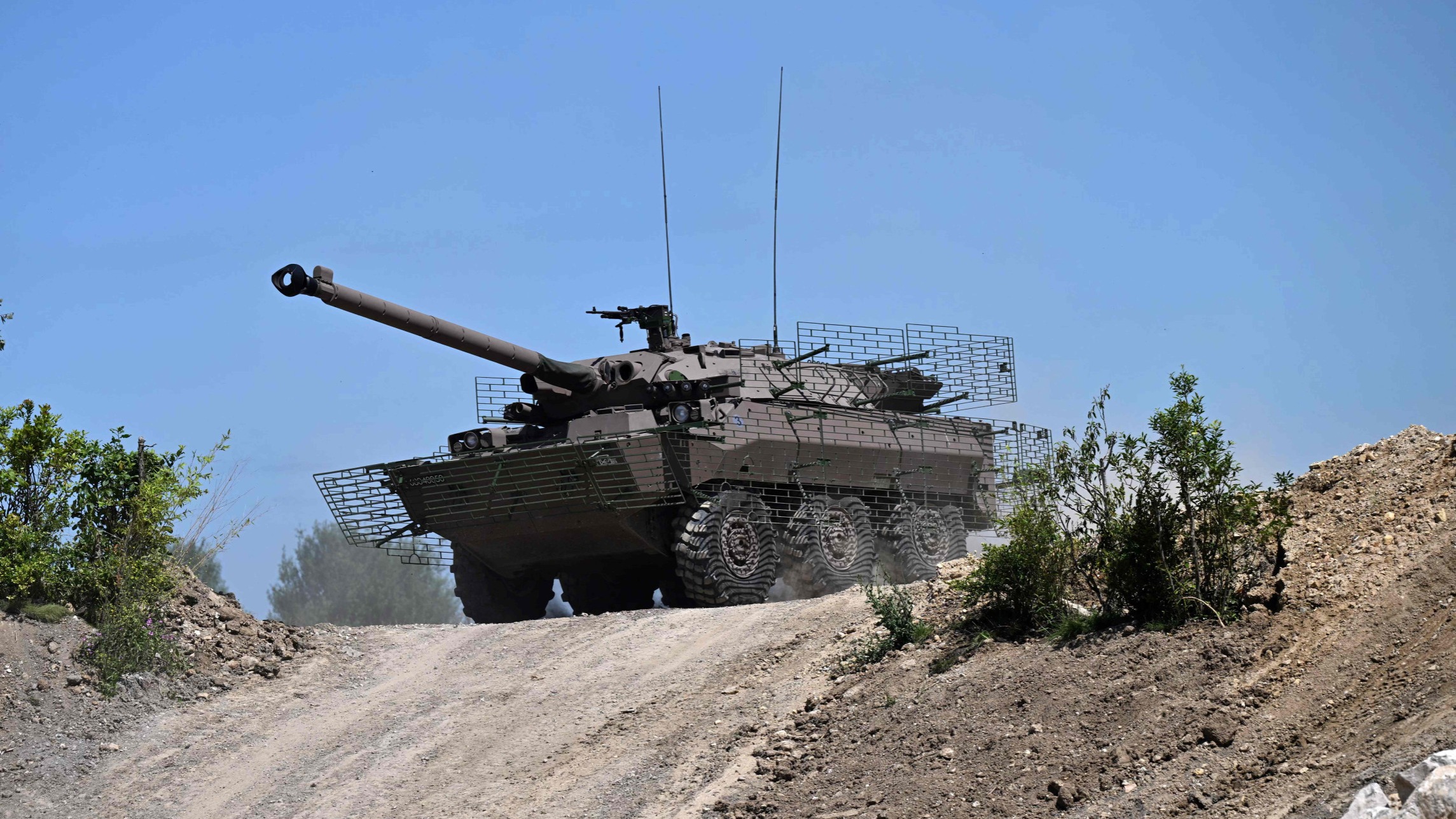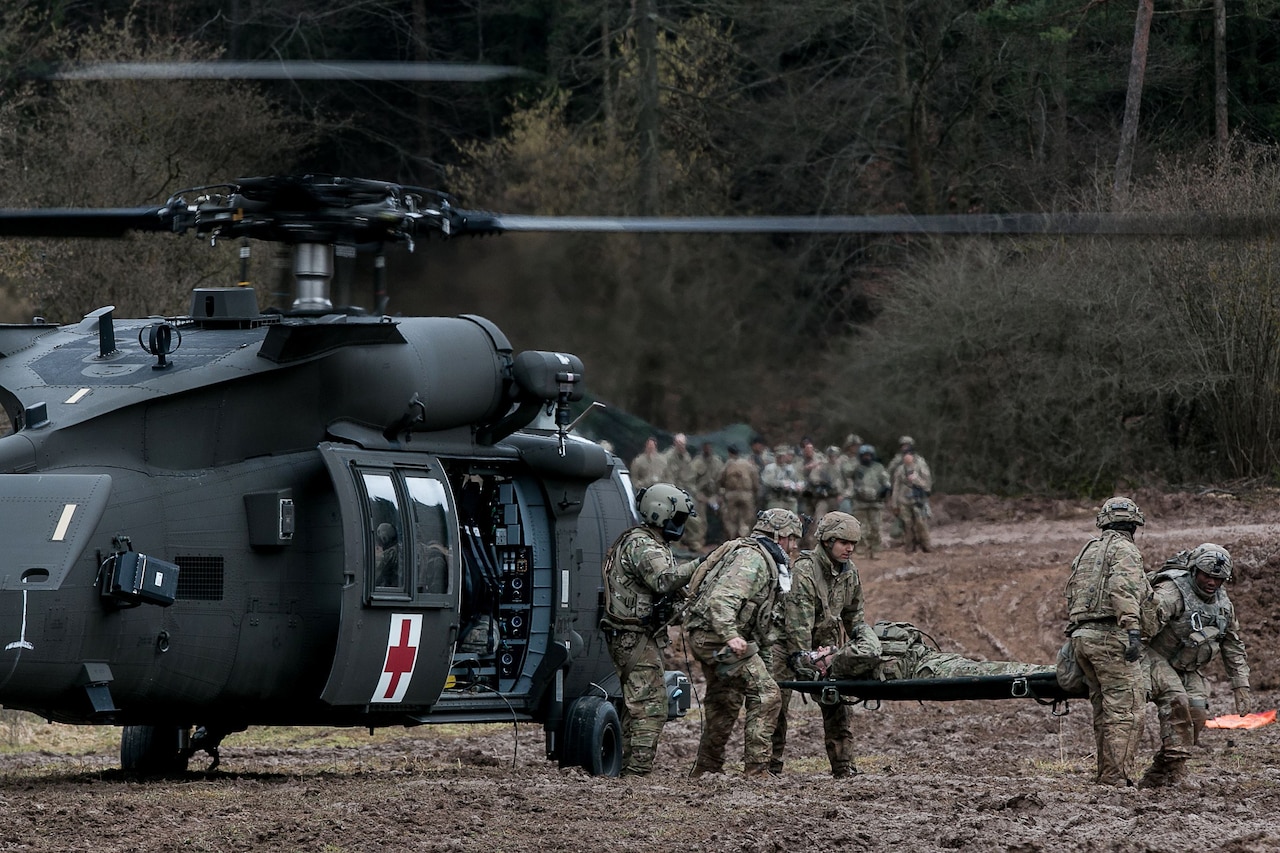Germany Military - Germany's rational efforts to grow with European companies are still strong. No country can do more to support European collective security than Germany, Europe's largest economy and stable power. Julianne Smith reported recently this year, that the difference between words and actions continues to confuse not only friends, but also the Germans themselves. The president of the Munich Security Conference criticized the German government for avoiding tough decisions, showing as evidence when German politicians are paying the price for multilateralism and strengthening NATO, while at the same time support for the Nordstream 2 air pipeline or continue investing in the Bundeswehr. . .
At this year's Munich Security Conference, German Chancellor Angela Merkel addressed Africa's various security and foreign policy issues. Ursula von der Leyen, Germany's defense minister since 2013, considers the high budget "a question of credibility for the military and for Germany in the world." Unfortunately, the exact location of Germany's security forces - despite ongoing negotiations - is still unknown.
Germany Military

The voice of German workers in uniform is no longer heard in the debate about their country's work in the world. The Bundeswehr does not need intelligent and forward-thinking personnel, but it does not seem to share the US tradition of contributing to the public debate about war and security. Although their commander is rarely heard from in public, even the current defense chief has struggled to explain to his German Bundeswehr colleagues. The Ministry of Defense is working to connect the military with public research and debate on defense issues with the recent establishment of the German Institute for Defense and Strategic Studies. Designed as a think tank for the Bundeswehr and based in Hamburg by the General Staff College, it is still too early to assess its impact.
Germany's Plans For Massive Military Investment Have Critics Questioning If It's Too Little Too Late
This is unfortunate, because the Bundeswehr has the largest number of Germans who think and act in defense law. They worked with American forces in Kosovo, Iraq, and Afghanistan, and today support security forces in countries such as Libya and Mali. The Germans in uniform with whom I work believe that NATO continues to work, not only as a matter of collective security but in relation to Germany's national interests. Since they have so much to say, why not?
The ready answer is history, which the Germans refer to as their carry-on baggage. The Bundeswehr is heavily influenced by Germany's history and history. Today in Germany, the story of the Second World War is a touching story. When terrorists approach the police, they become national news, and political violence can exacerbate tensions between armed groups. This disrupts the traditional military practice of fostering connections between today's military and the past.
As a legend, when the history department at the German staff college of the Bundeswehr taught our class the study of Field Marshall Erwin Rommel, instead of analyzing his development or his great battles, the focus was on his relationship with the test Hitler's life in July. 20, 1944. The meaning is clear: If he is a supporter of the treaty, then today's Bundeswehr can respect him. If he's just hiding his money to see how the attack was done, it doesn't fit the bill. The Second World War Wehrmacht stands out in the context of history and modern warfare. Two years ago, the Defense Minister publicly considered renaming one of Rommel's German bases. Meanwhile, most American officers I met thought of Rommel in the same glowing terms of George C. Scott's Patton. And some of the basic symbols of the U.S. military. Confederate officers just said it.
At the German Bundeswehr's National General/Admiral Staff Officer Course, senior officers spend two years studying sociology, history, and geopolitics in addition to basic military training taught by U.S. officials such as the Command and General Staff. College. As the last part of the advanced military education given to the officers, it is the advanced education in the Bundeswehr, and it is taught together for a group of classes connected with all the branches of the service. And since this is Germany, the country that created the General Staff, the class meets at the post called Clausewitz, a daily reminder of the history of war. Students and faculty represent the future leadership of the German military in a similar way to the ranks of US military colleges.
German Military Readiness Vital For Nato Alliance
After spending the last seven months surrounded by the Germans and their NATO allies, I am interested and concerned: the behavior of our allies as professional soldiers and the efforts of the military within the military to strengthen NATO's defense It's hard, and I'm worried. the future of security alliances where the most successful investors appear to be those who wear uniforms, who ultimately choose political leaders.
Germany's commitment to increase its defense spending to 1.5 percent of GDP by 2025 is being questioned by the ongoing conflict in the governing coalition between the Christian Democratic Union (CDU) and the Social Democratic Party (SPD). . As Germany's foreign-controlled economy threatens to shrink, the SPD finance minister pressured CDU defense minister von der Leyen to agree to a five-year minimum defense spending cut of 1.25 percent. come. What is happening now predicts an interest rate of 1.37% for 2020. The Ministry of Defense has managed to increase defense spending for the past five years, but the shock of large projects makes everything controversial.
My experience is that the German military retains the skills it acquired during its years leading NATO, but its leaders are dressed to recognize that the German people care about security. As Nora Müller put it in a recent article, Germans want to be like "big Switzerland," focusing on their own wealth, and maintaining happiness without participating in central economic competition. Germany's recent lack of trust in the United States weakens their commitment to collective security. The attitude of the world reminds me of Trotsky's aphorism: "You may not like war, but war will love you." The only time Germans stop thinking about the Bundeswehr is when the media fixes something embarrassing, like money to fix balloons and school trains.

Or annual report on equipment preparation. It goes without saying that if the Germans want to stop reading such stories, they will support the limits of the defense budget. But the reality of buying modern military equipment is that the systems are very expensive, especially when it is considered in terms of cost of living. In fact, one of the biggest problems facing the Bundeswehr is the lack of replacement weapons. After all, Germany is not the kind of country that would open a tank factory just to send them to safety. And although the officers who attend these courses generally believe that the preparations are going well and it will be good to continue, the German soldiers show all kinds of military humor when we began to talk about the preparation of tanks or military aircraft.
German Military Would 'lose War To Azerbaijan'
Although my German friends often look with envy at the high rank of the US military or the amount of equipment they have, I try to remind them that their country's defense very different from the US military. The United States should look ahead to NATO, whether to protect international cooperation, protect its friends in the Pacific, or continue to charge in the Middle East. NATO partners are involved in many of these issues, but none of them require the same global reach. Germany has not been able to think across Europe since before the Cold War, and the modern Bundeswehr has learned over the years and prepared its forces to deal with the delay of the Warsaw Pact, on its own soil, until reinforcements arrive. The extent to which the Germans can consider their military presence and military operations beyond their borders has ended since September 11 with the invocation of Article 5 of NATO.
One of the most debated questions in the German military is whether or not Germany has an intellectual culture. In the military and academia, I think they do, but like the US military, the Bundeswehr follows the orders of political leaders who answer to the voters. Müller suggests that the German defense is skeptical of an argument that does not exist, but I am not sure that it is. As they say, the Germans are interested in security policy, and their media is currently covering the 70th anniversary of NATO and the controversy over security issues. What I think is missing is the right perspective
Aircraft appraisal online, free aircraft appraisal, aircraft appraisal services, aircraft appraisal cost, aircraft appraisal jobs, aircraft appraisal course, aircraft appraisal training, business appraisal, rolex appraisal, appraisal software, 409a appraisal, aircraft appraisal report
:max_bytes(150000):strip_icc()/strada-della-forra--forra-road--in-tremosine--lake-garda--italy--915387076-508a72e36dd04f65b34eefa5032f374d.jpg)















